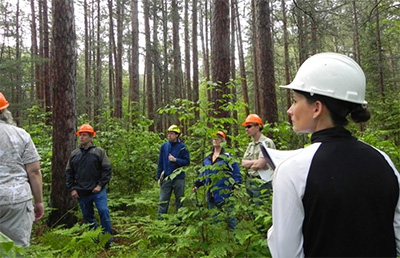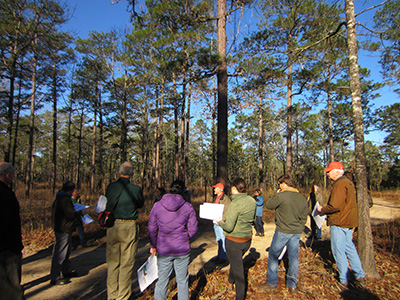About the ASCC Network
Photo Credit: Molly Roske
Forest managers need robust examples of how to integrate climate change adaptation into silvicultural planning and on-the-ground actions. The Adaptive Silviculture for Climate Change (ASCC) project is a collaborative effort to establish a series of experimental silvicultural trials across a network of different forest ecosystem types throughout the United States and Canada. Scientists, land managers, and a variety of partners have developed fourteen trial sites as part of this multi-region study to research long-term ecosystem responses to a range of climate change adaptation actions.
Each trial is focused on understanding and evaluating management options designed to enable forests to respond to a changing climate. Site-specific treatments were developed according to local conditions and tailored to meet site-specific management objectives, while at the same time aligned under a common framework for answering questions about how different forest types will respond to future climate.
In using this two-tiered design, ASCC provides a means for evaluating adaptive management strategies across distinct forest types, allowing researchers to ask broad questions about climate change adaptation across all study sites, while also addressing on-the-ground management needs specific to individual sites.
Primary Objectives:
- Create a multi-region study with locally-suited climate change adaptation treatments, using input from an expert panel of regional scientists and local managers
- Introduce natural resource managers to conceptual tools and approaches that help integrate climate change into resource management and silvicultural decision making



